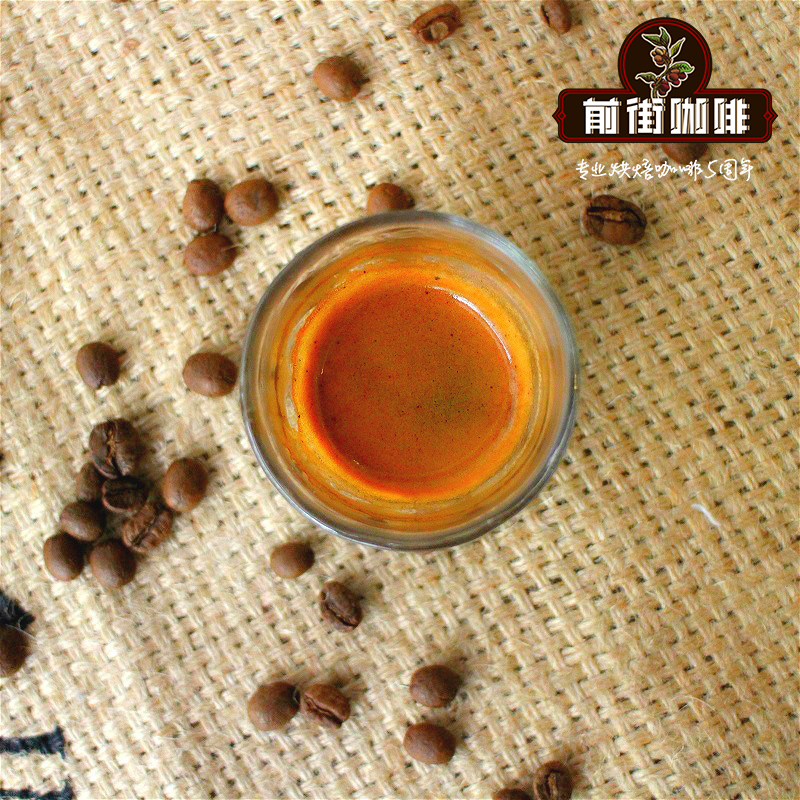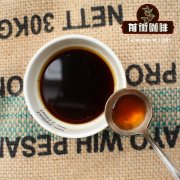The third wave of coffee in the mainland the types of individual coffee broke out in boutique coffee shops in Shanghai.

Professional coffee knowledge exchange more coffee bean information please follow the coffee workshop (Wechat official account cafe_style)
The third wave of coffee is dominated by boutique coffee shops. This culture pays attention to in-depth taste of coffee, so that drinking coffee is not only a taste of life, but also a deeper connotation and knowledge. This wave is not only rising all over the world, but also fermenting in first-tier cities in the mainland, including the smell of coffee in the hutongs of Beijing. For foreign investors, Shanghai is definitely the first choice for them to open coffee shops.
Shanghai boutique coffee has long been popular: independent coffee shops such as Japanese hand coffee shop Rumors Cafe, Taiwan quality shop, American Mellower Coffee and Seesaw have established their status as early as a few years ago, gradually stepping out of the niche, opening coffee shops in the core business district with a more dense flow of people, and many coffee masters from all over the world because of the inclusive and international advantage of Shanghai. One after another flocked to Shanghai to set up coffee shops, making Shanghai a stronghold of boutique coffee shops.
At Mellon in Hongqiao, Shanghai
Taiwan baristas promote the third wave of coffee in Shanghai
Taiwan has a long coffee culture, and Taiwanese baristas have won many awards in the World Coffee Competition, so many baristas from other countries have come to Taiwan to learn from the experience. In recent years, many Taiwanese baristas have chosen to set up coffee shops in Shanghai. "I found that Shanghai is the best and most international city in the coffee industry. I hope GABEE. If there is a bigger platform for development, I choose to open a coffee shop in Shanghai. " Taiwan champion coffee master and boutique coffee shop GABEE. Founder Lim Dong-Won went to Shanghai as early as 2005 to open a branch of the coffee shop.
Lim Dong-Won put it this way: "the pace of life in Taiwan is slow. Cafes are places to go when you relax, but living in Shanghai is fast-paced and has more commercial elements." He said that Shanghai consumers' understanding of coffee is still partial to the early stage, thinking that coffee is full-bodied and bitter, so he wants to pass on the coffee culture to the local people: "in the future, we will pay more attention to the brewing mode and origin of coffee." this is a bit of an education for consumers. "
Zheng Songmao, a famous Taiwanese advertiser, opened a coffee shop "quality shop" in Shanghai in 2013 and is now one of the representatives of Shanghai boutique coffee shops. Like Lim Dong-Won, he wants to bring a new concept of coffee to mainland consumers: "Chinese people are in the stage of increasing their spending power, and everyone is willing to experience the latest things in the world through consumption."
This group of Taiwanese baristas came to Shanghai with the concept of boutique coffee to vigorously promote the local coffee culture. Wang Xiaofeng, the owner of Moon Coffee, an independent coffee shop in Shanghai, points out that the boutique coffee culture in Shanghai three years ago is far less popular than it is today. Coffee shops opened by Taiwanese, such as "pure" and "quality shops," advertise themselves as boutique beans baked by themselves. it broadens the horizons of Shanghai consumers who only knew about Starbucks at that time.
GABEE. Founder Lim Dong-Won believes that coffee is still a niche market, and it is necessary to take advantage of the opportunity to cooperate with other fields to connect "coffee" with the public, so brands have a lot of cross-border cooperation.
There is also a market for coffee shops with different styles.
The independent coffee shops in Shanghai have their own characteristics. Trinity Cafe, located in the Xintiandi business district department store, is aimed at people with high income and high education. The store style is mainly elegant and the price is high. Take Latte as an example, each cup is about 42 yuan. However, because of the high quality of TC Cafe coffee, especially the popularity of the self-created planet Latte, there is no shortage of guests who go there every day.
Trinity Cafe focuses on coffee, targeting high-end customers.
There are not only magnificent coffee shops, but also low-key and hidden coffee shops. Hidden in an old Shanghai community on Jiangyin Road, the "Lutian Coffee study Society" was founded by Japanese roaster and barista Hideo Nakajima. Because of limited funds, he and his wife only rented a long room, half for baking space and half for hand-made coffee to entertain guests. Although the space is small, both home-baked beans and hand-brewed coffee are of very high quality, and now they even adopt the reservation system, so they have accumulated a lot of loyal coffee fans who pursue the quality of coffee.
Although the styles of these two coffee shops are very different, it is precisely because of their own characteristics, coupled with high-quality coffee beans, that they can stand up in Shanghai's boutique coffee market. "in the past two years, more and more people have paid attention to boutique coffee and boutique coffee shops, bringing new development opportunities for these independent coffee shops," said Wu Yue, who co-authored the Guide to Shanghai boutique cafes. "
I wonder if in the near future, there will be one independent coffee shop in Shanghai, like in Taiwan, every two steps.
Important Notice :
前街咖啡 FrontStreet Coffee has moved to new addredd:
FrontStreet Coffee Address: 315,Donghua East Road,GuangZhou
Tel:020 38364473
- Prev

The latest definition of SCAA Fine Coffee the relationship between boutique coffee and individual coffee
Professional coffee knowledge exchange more coffee bean information Please follow the coffee workshop (Wechat official account cafe_style) roasters' high-quality coffee is then transferred to the roasters, some of whom have been certified by the American Association of Bakers (RG) to complete multi-hour roasting courses and practical operation training to skillfully roast high-quality coffee raw beans. Coffee roasting is an art.
- Next

How do you drink the coffee powder you bought? How to cook coffee powder to taste good?
Professional coffee knowledge exchange more coffee bean information Please pay attention to coffee workshop (Wechat official account cafe_style) Coffee powder may not be familiar to some people, but coffee people know very well, if you want to drink good coffee, you must pay more attention to some tips for brewing coffee, so that the nutritional value of coffee can be released. How do you cook coffee powder? 1. Boiling will make the coffee bitter
Related
- Detailed explanation of Jadeite planting Land in Panamanian Jadeite Manor introduction to the grading system of Jadeite competitive bidding, Red bid, Green bid and Rose Summer
- Story of Coffee planting in Brenka region of Costa Rica Stonehenge Manor anaerobic heavy honey treatment of flavor mouth
- What's on the barrel of Blue Mountain Coffee beans?
- Can American coffee also pull flowers? How to use hot American style to pull out a good-looking pattern?
- Can you make a cold extract with coffee beans? What is the right proportion for cold-extracted coffee formula?
- Indonesian PWN Gold Mandrine Coffee Origin Features Flavor How to Chong? Mandolin coffee is American.
- A brief introduction to the flavor characteristics of Brazilian yellow bourbon coffee beans
- What is the effect of different water quality on the flavor of cold-extracted coffee? What kind of water is best for brewing coffee?
- Why do you think of Rose Summer whenever you mention Panamanian coffee?
- Introduction to the characteristics of authentic blue mountain coffee bean producing areas? What is the CIB Coffee Authority in Jamaica?

